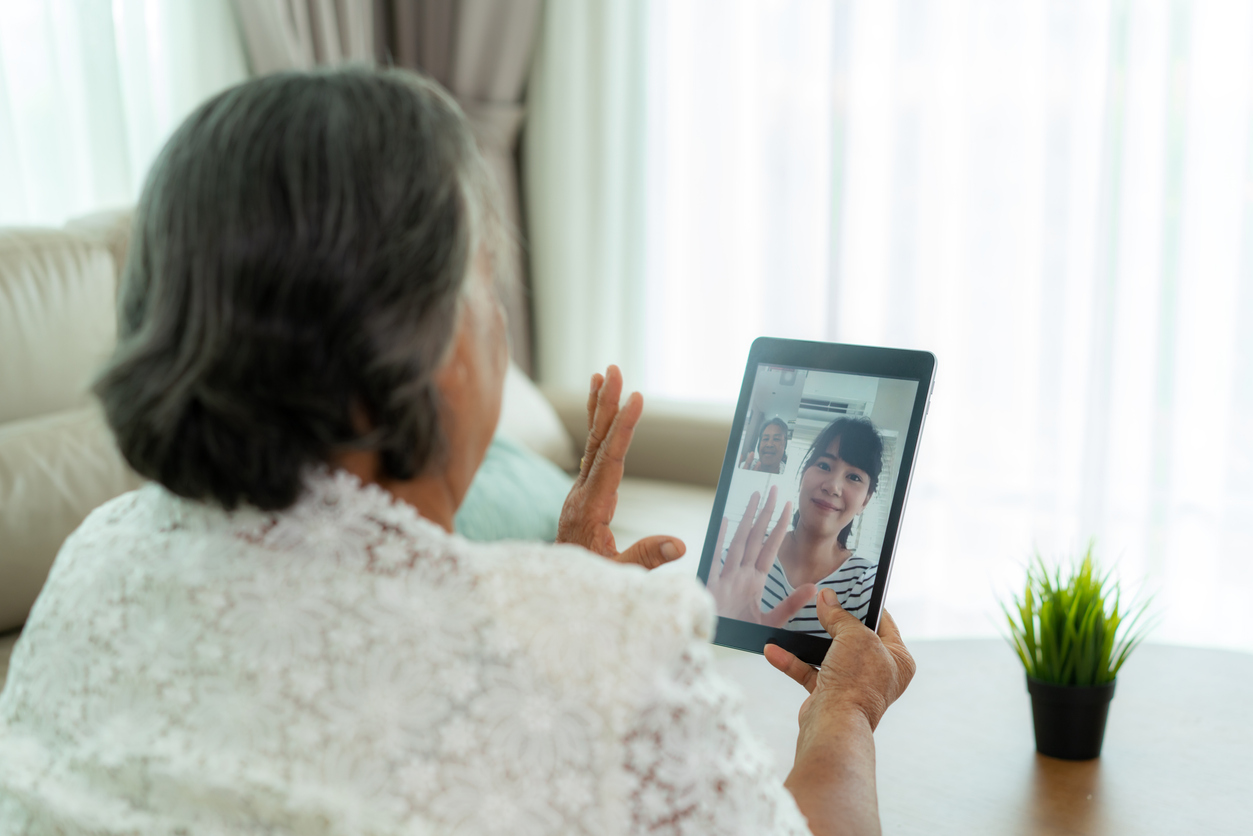As parents age, many adult children find themselves in a challenging position, living far away while wanting to support their parents. Long-distance caregiving can feel overwhelming at times, but with thoughtful planning and effective communication, it’s possible to provide meaningful assistance, even from afar. Below are strategies to help manage the emotional and logistical aspects of caring for elderly parents from a distance.
1. Maintain Regular Communication
Consistent and open communication is the foundation of long-distance caregiving. Regular check-ins—whether by phone, video calls, or messaging—can offer emotional support and help you stay aware of their day-to-day well-being. Here’s how to maintain strong communication:
- Video Calls: Platforms like Zoom, Skype, or FaceTime allow you to connect face-to-face, which can be comforting for both parties.
- Frequent Updates: Schedule regular calls at a set time each week to establish a routine. Encourage your parents to call you when they need assistance.
- Smartphones and Tablets: Set up devices with user-friendly apps and teach your parents how to use them for easy communication.
2. Set Up a Local Support System
Having trusted people nearby is essential to help fill the gaps when you can’t be physically present. This could include:
- Neighbors and Friends: Foster relationships with your parents’ neighbors and close friends, who can check in on them occasionally.
- Professional Help: Hire a local caregiver, housekeeper, or meal delivery service. Many communities have organizations that provide in-home care and companionship for seniors.
- Family Members: If there are siblings or relatives nearby, coordinate responsibilities and share updates regularly to stay in the loop.
3. Use Technology to Monitor Health and Safety
Technology offers a wide range of tools to help you keep an eye on your parents’ health and safety from afar:
- Medical Alert Systems: Equip your parents with emergency devices that allow them to call for help quickly if needed.
- Health Monitoring Apps: Apps and devices like smartwatches or fitness trackers can help track vital signs like heart rate, blood pressure, and physical activity.
- Home Security Systems: Install smart home devices, such as motion detectors and security cameras, which can alert you if something unusual happens.
4. Help Manage Finances and Legal Affairs
Managing bills, medical paperwork, and legal matters can become more complicated as parents age. Assisting them in staying organized is crucial:
- Automate Bills: Set up automatic payments for utilities, rent, or mortgage, and other recurring expenses to avoid late payments.
- Online Banking: Help your parents create online banking accounts so you can assist with managing finances remotely.
- Legal Documentation: Ensure your parents have updated legal documents, such as a power of attorney, will, and healthcare directives, in place. Consider consulting an elder care attorney if necessary.
5. Plan Visits Strategically
When you visit your parents, make the most of your time by addressing both their immediate needs and long-term plans. Here’s how to make visits productive:
- Assess Living Conditions: Take note of their living environment—are there safety hazards, like loose rugs or poor lighting, that need addressing? Do they seem able to manage daily tasks?
- Coordinate Medical Appointments: Schedule doctor’s appointments or other necessary check-ups during your visit to stay informed about their health.
- Spend Quality Time Together: While logistical support is important, also focus on enjoying time together to strengthen your emotional bond.
6. Stay Informed About Their Health
Being proactive about your parents’ healthcare is essential. Ensure you are well-informed about their health needs and treatment plans:
- Talk to Healthcare Providers: With your parents’ permission, stay in touch with their doctors. Many healthcare providers can share updates or allow virtual consultations to keep you informed.
- Track Medications: Help your parents keep a record of their medications, dosages, and schedules. Medication management apps can be useful tools to ensure nothing is missed.
- Stay Alert for Warning Signs: Be aware of common signs of cognitive decline, mobility issues, or other changes in health, so you can address them quickly.
7. Organize Local Resources
Take advantage of resources available in your parents’ area to support them:
- Senior Centers: Many communities have senior centers that offer activities, meals, and socialization opportunities.
- Transportation Services: Look into local transportation options, such as shuttle services for seniors or rideshare programs, to help your parents maintain their independence.
- Community Programs: Churches, charities, and volunteer groups often have services specifically designed to help elderly individuals with daily needs.
8. Prioritize Self-Care as a Caregiver
Long-distance caregiving can be emotionally and physically draining. It’s important to care for yourself so you can be effective in supporting your parents:
- Seek Support: Join online forums or caregiving groups to connect with others who are in similar situations. These networks can provide emotional support and practical advice.
- Share Responsibilities: If possible, share caregiving duties with siblings, relatives, or professionals. Don’t hesitate to ask for help when you need it.
- Set Boundaries: Understand your limits and set realistic expectations for what you can do. Balance your responsibilities and maintain time for self-care.
Conclusion
Long-distance caregiving can be challenging, but with the right strategies in place, it’s entirely possible to provide the support they need. By leveraging technology, building a local network, managing healthcare and finances, and prioritizing communication, you can ensure that your parents are safe, healthy, and happy even when you’re miles apart.
If you or someone you know is interested in care management or home healthcare services in South Florida, FirstLantic can help. We are locally owned and operated, providing our patients with the highest quality in-home care services in Fort Lauderdale (Broward County), as well as in-home care services in Delray Beach (Palm Beach County), North Miami (Miami-Dade) and Jupiter (Treasure Coast) since 2000. Click here to contact us.
 AVAILABLE 24 HOURS A DAY/7 DAYS A WEEK
AVAILABLE 24 HOURS A DAY/7 DAYS A WEEK Careers
Careers



